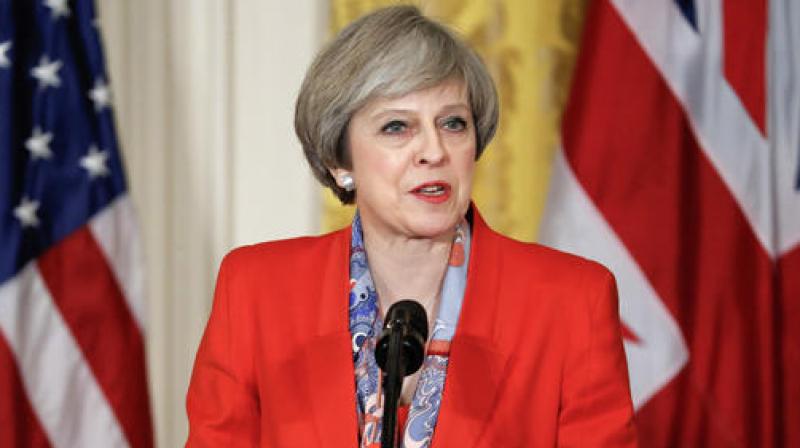Theresa May distances herself from Trump over his immigration ban

London: Two days after a friendship-forging meeting with Donald Trump, British Prime Minister Theresa May on Sunday discreetly distanced herself from the US president as anger over his immigration restrictions mounted.
Downing Street said May does "not agree" with the restrictions and would intervene if they affected British nationals.
May had sparked controversy on Saturday after refusing to condemn Trump's executive order as she was being pressed by journalists during a trip to Turkey.
"Immigration policy in the United States is a matter for the government of the United States, just the same as immigration policy for this country should be set by our government," a spokesman from her office said on Sunday.
"But we do not agree with this kind of approach and it is not one we will be taking. If there is any impact on UK nationals then clearly we will make representations to the US government about that."
Foreign Secretary Boris Johnson went further, saying it was "divisive and wrong to stigmatise because of nationality."
The first foreign leader to meet Trump since his arrival in the White House, May discussed with the new president the possibility of quickly putting in place a trade agreement between the two countries after Britain's exit from the EU.
Shortly after their talks, Trump signed an executive order to suspend refugee arrivals and impose tough new controls on travellers from seven Muslim countries -- Iraq, Iran, Libya, Somalia, Syria, Yemen and Sudan.
As resistance to the curbs mounted, a US federal judge on Saturday ordered authorities to suspend the deportation of refugees and other travelers stuck at US airports.
Meanwhile an MP from May's Conservative Party on Saturday revealed he would be barred from entering the US under Trump's clampdown.
Iraqi-born MP Nadhim Zahawi tweeted that he had had "confirmation that the order does apply to myself and my wife as we were both born in Iraq," even though the pair have British passports.
"A sad sad day to feel like a second class citizen! Sad day for the USA," he added.
Double-double Olympic champion Mo Farah, who represents Britain but was born in Somalia, on Sunday slammed the clampdown, calling it a policy of "ignorance and prejudice" that could keep him apart from his family, who are based in the US.
"On 1st January this year, Her Majesty The Queen made me a Knight of the Realm. On 27th January, President Donald Trump seems to have made me an alien," he wrote on Facebook.
'Too late, too weak'
The implications of the restrictions for British citizens led to increasingly loud calls from lawmakers that May distance herself from Trump.
Opposition Labour party leader Jeremy Corbyn called on the government to put off the president's scheduled state visit until the ban was rescinded.
May "would be failing the British people if she does not postpone the state visit & condemn Trump's actions in the clearest terms," he wrote on Twitter.
Former Labour leader Ed Miliband called May's response "far too late and far too weak" while First Minister of Scotland Nicola Sturgeon tweeted: "The PM should have said this the first time she was asked, not hours later and only under pressure."
Tory MP Sarah Wollaston called Trump "a sickening piece of work" while colleague Heidi Allen tweeted that "strong leadership means not being afraid to tell someone powerful when they're wrong."
An online petition calling for Trump "not be invited to make an official State Visit because it would cause embarrassment to Her Majesty the Queen" has already received 60,000 signatures, and will be considered for debate in parliament if it reaches 100,000.

